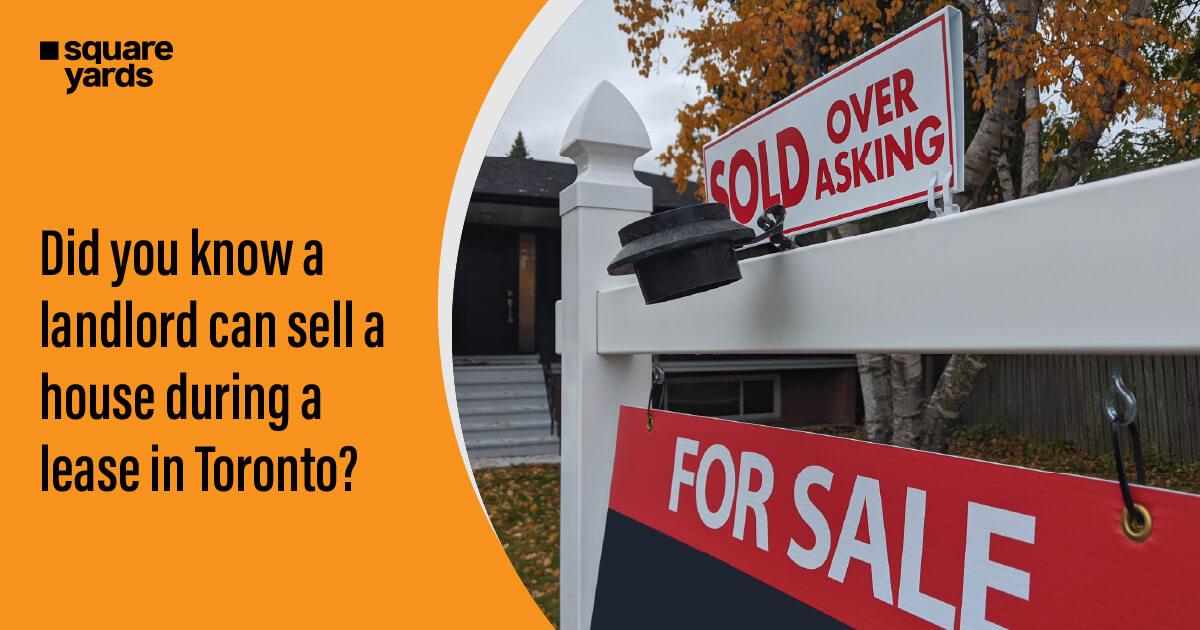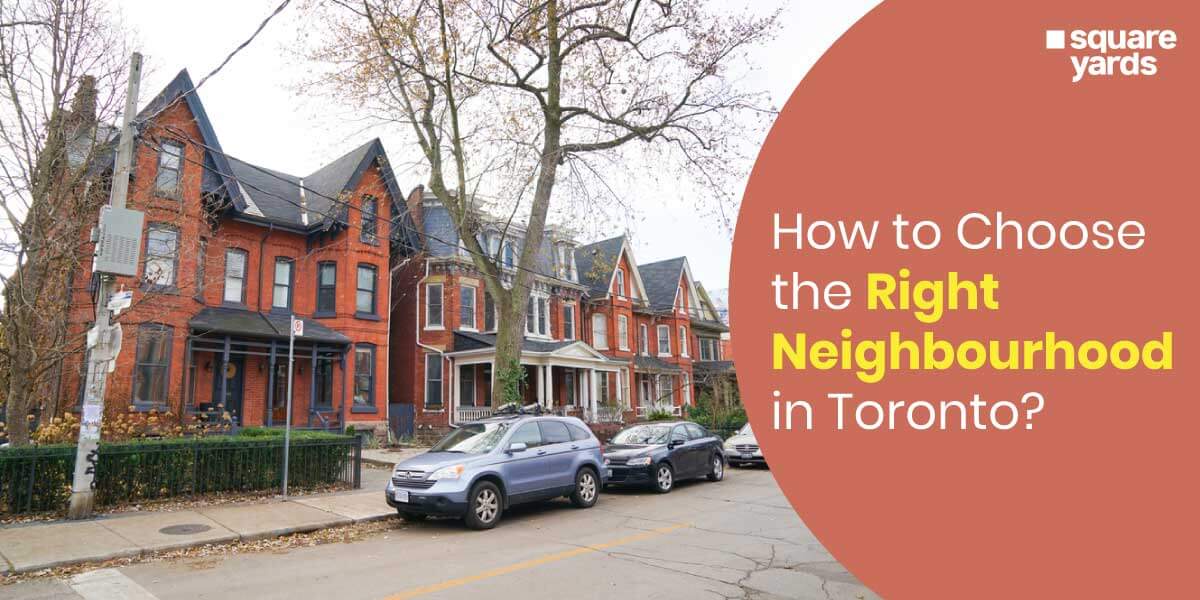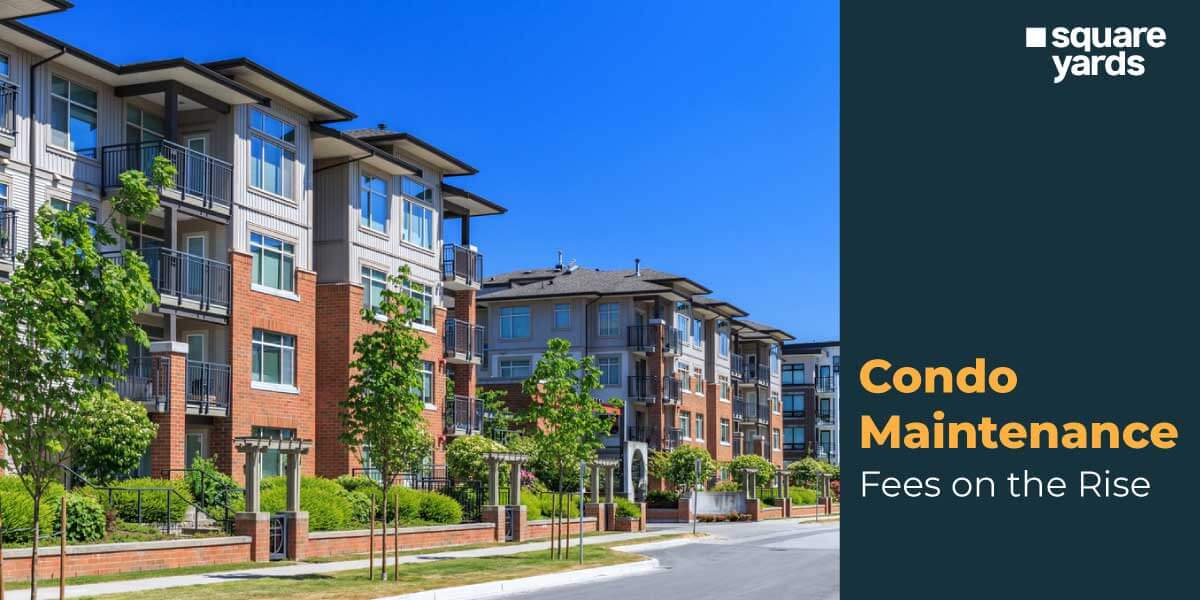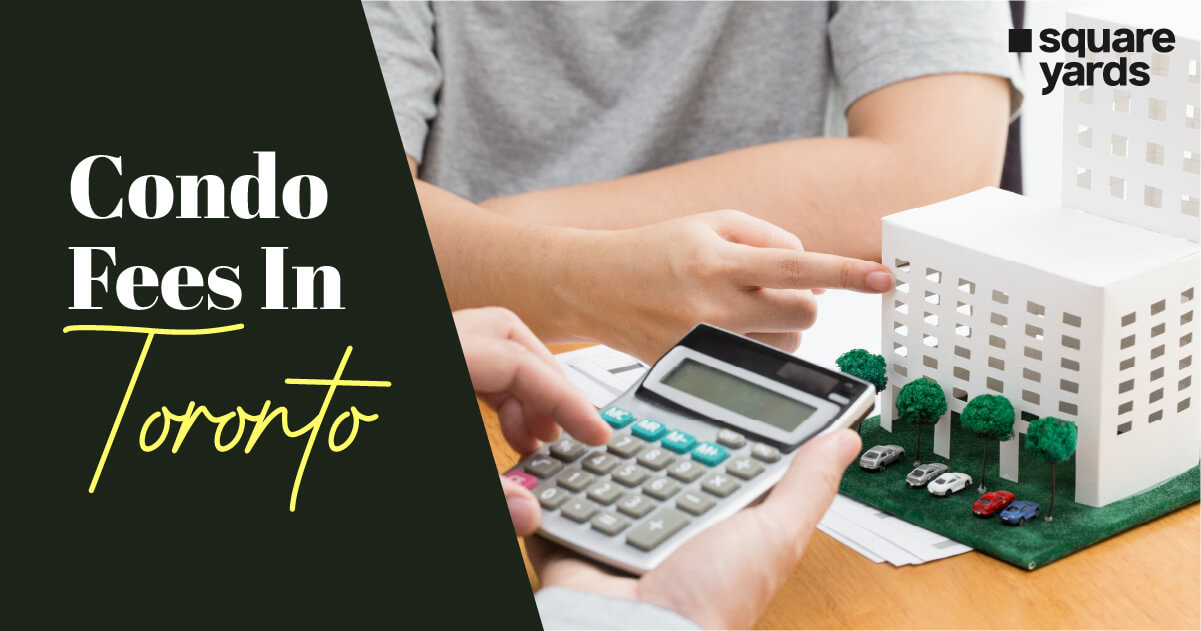A landlord in Toronto could decide on selling a house with tenants in it while the lease is still in effect. However, they must follow certain rules and regulations set by the province to do so.
For instance, the landlord must give the tenants a minimum of 2 months’ notice if they want to sell the rental property in Canada and provide written notice if any changes to the sale would affect the tenant. If the tenant does not agree with the sale or the changes, they may be able to get out of their lease early.
This blog will explore the process when a landlord sells the rental property during a lease and what your rights as a tenant are. We’ll also provide tips on what to do if you find yourself in this situation.
What is Tenanted Property?

Tenanted property is a rental property where the tenant has exclusive rights to use and occupy the space for a specific period. The tenancy agreement outlines the tenancy terms, including the lease’s length, the rent amount, and other conditions that apply to the tenant’s use of the property.
In most cases, tenants can live in the property for the duration of their lease without being asked to leave by the landlord. However, there are some situations where a landlord may put their houses for sale with tenants during a lease. If this happens, the new owner would become the tenant’s landlord and be bound by the terms of the lease agreement.
Steps To Selling a Tenanted Property at a Higher Cost

If you’re a landlord and looking to sell your property in Toronto, there are a few things you need to keep in mind. To sell a tenanted property at a higher cost, you must take the following steps:
-
- The landlord must notify the tenant that they intend to sell the property. This notice must be served by the Residential Tenancies Act and cannot be given less than 60 days before the date of sale.
- The landlord must provide the tenant with a copy of the listing agreement for the property. The tenant has 14 days from receiving this agreement to provide written consent to its terms.
- Once the tenant has consented, or if 14 days have passed without a response, the landlord can proceed with listing and selling the property. However, they must still adhere to the rules and regulations in the Residential Tenancies Act regarding showings and open houses.
- Once an offer has been accepted on the property, the new buyer must be given notice that there is a current tenant in residence. The tenant then has first right of refusal on entering into a new lease with the new owner at their current rental rate.
What Are the Rules? : For Tenants and Landlords

In Toronto, a landlord can sell a house during a lease if the tenant agrees to it in writing. If you’re renting your property in Toronto, you should know a few things about the regulations around selling a house during the lease period.
-
Rules for Tenant
Here are some important details to know if your landlord is selling a house with tenants:
-
- You have the right to live in a safe and clean home. Your landlord is responsible for keeping the property in mint condition and ensuring it meets all health and safety standards.
- You have the right to privacy. Your landlord cannot enter your home without your permission, except in emergencies.
- Your landlord cannot make unreasonable noise or disturb you at odd times unless it is an emergency.
- You are responsible for paying rent on time and keeping the property clean and tidy.
- You must also follow any other rules set out in your lease agreement.
-
Rules for Landlord
Landlords must follow a few rules when selling a house with tenants in Canada. These include:
-
- The landlord must give the tenant at least 60 days’ notice before listing the property for sale.
- They must provide the tenant with a copy of the listing agreement.
- The landlord cannot force the tenant to move out before the end of the lease agreement.
- If the property is sold during the lease, the new owner must honour the terms of the lease agreement.
How to Convince Your Tenant?
If you’re a landlord and wish to sell the rental property during the lease, you might wonder how to convince your tenant. Here are six ways that might be of help:
-
- Offer them a financial incentive : If you offer your tenant a financial incentive to leave, they may be more likely to do so. This could include offering to pay for their moving expenses or giving them a rent credit.
- Give them prior notice : If you give your tenant adequate notice that you plan on selling the property, they may be more likely to cooperate. Be sure to check your local laws for the notice period required.
- Speak with their landlord : If your tenant is renting from another landlord, discuss your plans. They may be able to help convince the tenant to leave early.
- Show them comparable properties : If you show your tenant similar properties in the area, they may realise they could get a better deal elsewhere. This could convince them to leave early.
- Have someone else contact them : If you have someone else contact your tenant on your behalf, they may be more likely to listen. This could be a friend, family member, or even a professional leasing agent.
- Serve them an eviction notice : If all else fails, you can always serve your tenant an eviction notice. However, this should only be done as a last resort after consulting with an attorney.
Conclusion
If you’re considering selling a house with tenants, ensure that you follow the lease terms and provide prior notice to those occupying the property. You should give your tenants at least 60 days’ notice that you intend to sell the property. Once your real estate agent has found a suitable buyer, you can negotiate with the current occupants about vacating the house. If your tenants have a fixed-term lease, they may be entitled to stay in the unit until their lease is up. However, if they have a month-to-month lease, they may have to move out sooner, depending on when the new buyer wants to take possession With a little bit of planning, the process should be hassle-free.
You May Also Read :
| Tenant Rental Problem | Common Tenant Rental Problem |
| Landlord Tenant Rights | All About Landlord Tenant Rights |
| Property Sale in Toronto | Tenanted property for Sale in Toronto |
| Buy a Leasehold Property in Canada | Guide To Buy a Leasehold Property in Canada |
| Vacation Home Rental in Toronto | Know About Vacation Home Rental in Toronto |
Frequently Asked Question (FAQs)
After renting your property, if you want to sell your house and your tenant is on a fixed-term lease, you will need to wait until the lease is up before listing the property. If you have a month-to-month lease, you may notify your tenant that you intend to sell the property and require them to vacate during the sales process.
If you are selling a house with tenants in, the new owner will be legally bound by the lease terms. The tenant will have the right to stay in the property until the end of the lease period unless they breach the terms of the lease agreement.
A happy tenant is more likely to take care of the property and keep it in good condition. This makes it easier and quicker to sell the property when the time comes. Furthermore, a satisfied tenant is less likely to try to negotiate a lower sale price or ask for repairs to be made before agreeing to purchase the home.
If you're planning on selling your house during a lease, it's important to give your tenants as much notice as possible. Ideally, you should provide at least 60 days' notice in writing so they can find another place to live.
A few types of houses can't be sold with a tenant. These include: Houses that are in poor condition and need significant repairs Houses that have been foreclosed on Houses that are part of an estate sale Can I evict my tenant if I want to sell a house?
What happens if you sell a property while tenants occupy it?
Why a happy tenant leads to a quicker and easier sale?
How much notice to give tenants when selling a house?
What type of house can't be sold with a tenant?











